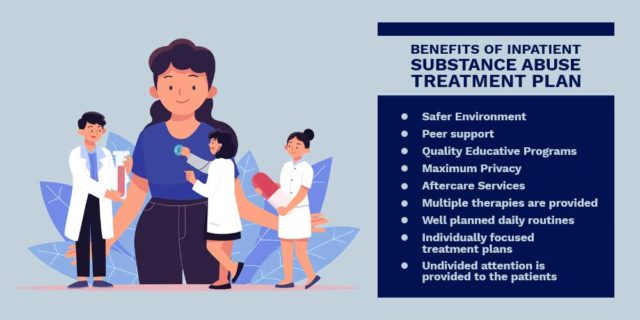9 Simple Techniques For Drug Rehabilitation
Table of ContentsThe 8-Second Trick For Drug Rehabilitation6 Easy Facts About Drug Rehabilitation Explained9 Simple Techniques For Drug RehabilitationIndicators on Drug Rehabilitation You Need To KnowSome Known Details About Drug Rehabilitation
This includes attending to the whole person to make certain that every one of the underlying domino effects of the dependency are properly looked after and remedied. This provides individuals the devices they need for a full return to a happy, healthy, substance-free life. Drug addiction "therapy" is a little bit of a deceptive term it suggests that individuals with dependencies are "all better" after they have gotten some form of treatment.Even individuals with years of effective recovery need to stay mindful of their possibility for regression, and they have to use the tools they discovered in therapy to stop it. Words "rehabilitation" additionally suggests that a person is being dealt with after being mischievous, which follows culture's preconception about dependency. Drug Rehabilitation. Part of the recuperation process is for people with addictions, and their families, to learn that dependency refers biology and not principles
Transitioning from physical and mental addiction to a healthy and satisfied means of living is a large change. It is very important that the actions to medication recovery be appropriately resolved during the medicine recovery process. There are four phases of dependency recuperation: Addiction analysis is an especially important part of the rehabilitation procedure.
This is part of the underlying psychology of dependency, and it enhanced by anxieties of apprehension for possession and judgment from family and close friends. The assessment procedure calls for acquiring trust and appearing that secretive nature. The private needs to identify which materials were utilized and the degree of their material usage.
Some Known Incorrect Statements About Drug Rehabilitation

For numerous individuals with addictions, fear of withdrawal is a significant obstacle to leaving their dependency, and that worry keeps them from even trying. Withdrawal and drug detox do not have to be an awful experience. By getting involved in a clinical detox program, people can get through the experience securely and conveniently.
This is where the underlying sources of addiction are dealt with. For most individuals with material dependency, their material usage is no longer regarding getting high. Instead, it came to be a recurring, day-to-day procedure of staying clear of withdrawal signs and symptoms and leaving from their reality. Drug rehabilitation is the process where the deep problems around the dependency are identified and attended to.
5 Simple Techniques For Drug Rehabilitation
Instead, it can be said that rehab is the procedure of discovery, while what takes place later is recovery. The addicted mind typically starts to think specifically after a period of time in abstinence that it click resources is okay to try alcohol consumption or utilizing compounds once again. Nonetheless, this seldom works, and the substantial bulk of individuals that attempt alcohol consumption or using medicines once more will promptly wind up where they were before.

Sober living homes are an especially efficient method to aftercare when an individual is discharged from rehab. Individuals and their households should go over these options with their therapists while still in rehabilitation. There are various kinds of treatment for dependency, based on the level of treatment offered. When picking the level of treatment, the selection needs to be based upon what will certainly offer the private the best chance of success in recuperation not on what the individual desires to do.
This is a negative combination, as it moves several people to believe that they can stop using medications or alcohol consumption by themselves. They may be unwilling to see and confess that they require a greater degree Discover More of care, such as inpatient rehab. Detoxification from a substance is not the like treatment for material dependency.
About Drug Rehabilitation
Throughout the procedure of medicine detox, people's minds are muddled and they really feel physically and psychologically unwell. They are not responsive to any kind of kind of therapy or treatment until their minds clear and they are really feeling much better. Although medical detox makes the procedure a lot easier, it is best to first emphasis on surviving the entire detoxification procedure before taking additional steps.
Like inpatient therapy, domestic therapy supplies the therapeutic effect of eliminating people from their useless lifestyle and environment and placing them in secure, healthy environments. This permits them to reorient their lives and thought procedures while focusing on distraction-free healing.
Individuals obtain therapeutic services on-site during the day, but go home or to a sober living facility at evening. The find out here intensity of the daytime treatment will depend on individual requirements and the programs available at the outpatient center. A lot of people with major addiction will likely have much better end results in inpatient treatment and rehabilitation.
The 7-Second Trick For Drug Rehabilitation
(TC). This is a technique to re-socializing individuals whose addiction has seriously impacted their capability to fit into society.